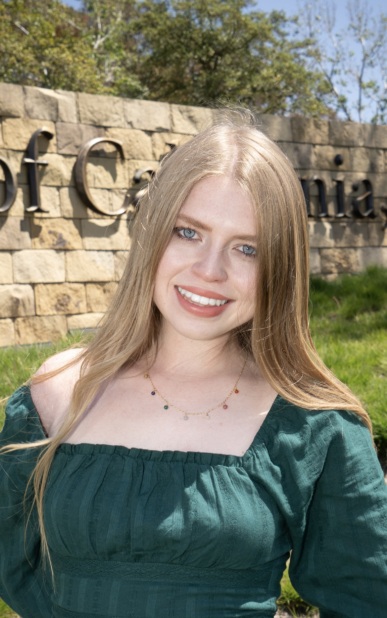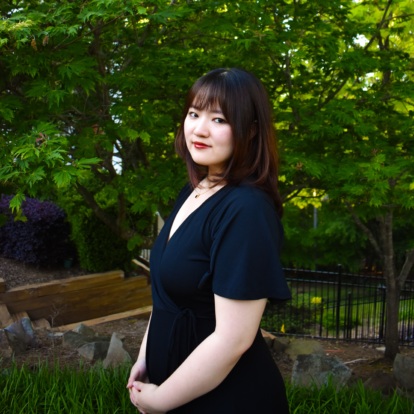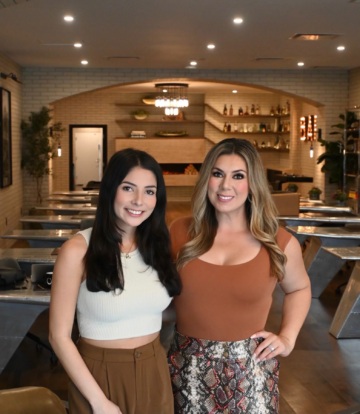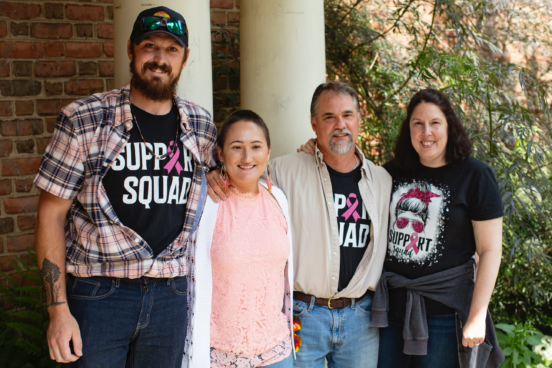Caregiving, Needs Navigation, Storytelling
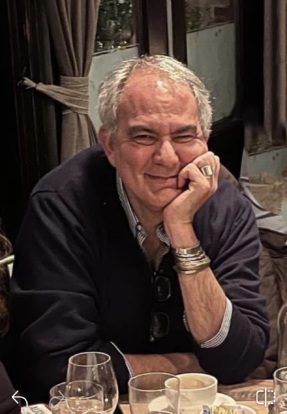
Julia Magdei, a Scholarship for Survivors recipient, shares how a life-threatening condition turned her into the advocate she is today.
Julia Magdei is a student at the University of California, Irvine and a recipient of Patient Advocate Foundation’s Scholarship for Survivors. To support this important program and students like Julia, consider sending a donation at their website.
I was living a life with no disabilities or disorders. I had a passion for writing, music, dancing, and acting. I had excellent grades, being in the top ten out of my entire class of close to 1,000 students. I was playing sports like tennis and track and field. I served in the class office, with prior leadership experience as student body president in middle school. I had been playing piano since I was five, singing in choir, winning annual poetry competitions, and performing at dance rehearsals from a young age.
My days were full, my dreams were bigger, and my energy was limitless. I was constantly reaching for near perfection—more goals, more growth, more life. But on September 18th, 2021, my life changed in an instant.
On that day, I was handed a different type of test—one of complete death or survival. A hemorrhagic stroke caused by a ruptured aneurysm, triggered by a life-threatening, extremely rare brain disease, nearly ended me. My body was suddenly paralyzed. My voice vanished. My vision blinded.
When I woke weeks later from an induced coma at Stanford Children’s Hospital, I could no longer walk, talk, see, or understand the world around me. I was trapped in a body that had once moved with grace, a mouth that had forever spoken confidently with ease, a set of eyes that had always seen the complete horizon, and a mind that had been wise beyond my years of being merely sixteen.
Arteriovenous malformation (AVM). Hemorrhagic stroke. Aphasia. Hemiplegia. Peripheral vision loss. Brain fatigue. Seizures. The list went on and on. These medical terms barely captured the daily struggles behind them—the frustration, the fear, the longing for what once was. Yet, when I could have crumbled, I chose instead to face these barriers head-on in order to grow and blossom. Slowly, with resilience, I relearned how to eat, how to walk, how to see, how to talk. Though in seemingly small baby steps, I started to make recovery. My AVM is still present in my brain currently, and I continue to work hard at recovery daily, but I refuse to let uncertainty define me. This is my life now—complicated, to say the least, but filled with hope and purpose.
The seemingly “small” acts—similar to what I did throughout my own medical journey—can ignite the power of advocacy. Advocacy looks like asking someone on the phone to slow down a bit, as my brain needs more time to process the information given to it. I have an acquired neurological language disorder called aphasia. It’s mild now, after working hundreds of hours with my speech pathologists, family, and friends. It’s not a sign of intellectual inability by any means, but simply a different way of communicating with others.
Advocacy means going to therapy and explaining to my therapists my current limitations—it doesn’t make me “weak” at all. If anything, it makes me stronger, as I’m willingly standing up for myself and helping others understand where I still need support.
Sometimes, advocacy comes from confessing a struggle I’ve had with loved ones or friends. Advocacy doesn’t have to involve a microphone or doing a viral trend to be powerful. Start new. Start with advocating in your local community and grow from there. Advocacy begins in those everyday conversations. Because just like a virus spreads through contact, advocacy spreads through word of mouth.
Advocacy became my mission when I was at my most vulnerable spot in life. Since 2023, I’ve served as a youth ambassador for the nonprofit organization The Aneurysm and AVM Foundation. The same year I joined, I stepped onto the stage and gave a speech at our annual walk in San Francisco. Speaking publicly about my own medical journey, I saw faces of strangers transform into faces of connection—with some teary, some smiling—all deeply moved. That moment taught me that advocacy is more than words. It is about humanity, about the bond we share in our shared struggles.
…. Advocacy is more than words. It is about humanity, about the bond we share in our shared struggles.
When applying for college and scholarships this past school year, the Patient Advocate Foundation welcomed me with open arms, granting me the Scholarship for Survivors. I am deeply grateful for this foundation, as well as for the National Patient Advocate Foundation, for all they do to help spread awareness and raise the voices of those facing serious medical conditions. It is through organizations like theirs that real change is made.
I still grieve what I lost—what I built after years of gymnastics, dance, and sports experience; the music that came from both hands on piano keys; the freedom of full vision; the small rituals of hairstyles like french braids or messy buns I used to make daily. Through it all, I celebrate what I have gained as well—deeper empathy, introspection, and compassion for others.
There is little research on AVMs and other rare diseases, and far too many stories left unheard. I refuse to be just a patient statistic. I want to be a living voice. I am not waiting to be AVM-free to start living. I live now. I speak now. I will fight now. Because in surviving, I found my voice—and in advocacy, I found my power.
To anyone reading this—if you feel unheard or unseen, know that your voice matters. Advocacy begins with you—in the small acts, in the honest conversations, in the courage to reveal your truth. Together, we can spread awareness, spark understanding, and build a community where no one faces their battles alone.”
Caregiving, Needs Navigation, Storytelling
Needs Navigation, Storytelling
Caregiving, Storytelling, Trust
Caregiving, COVID, Storytelling, Trust
